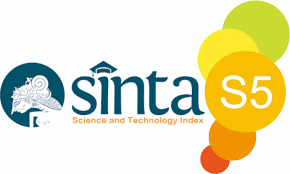WILLINGNESS TO ACCEPT VALUE OF LAND DEVELOPMENT VALUE AS A BASIS FOR CONSERVATION PROGRAM PADDY FIELDS SEKARSULI SUB IN VILLAGE DISTRICT BERBAH SLEMAN
DOI:
https://doi.org/10.30606/cano.v4i1.595Keywords:
Konservasil Farmland, The Development and Land UseAbstract
This study discusses the conversion of paddy fields in Sleman are constantly increasing over
time. Sleman District Government to establish areas of productive agricultural centers to maintain
the ability to produce food, especially rice. The subjects were farmers who have land in the village of
as many as 35 people Sekarsuli obtained using snowball sampling. Paddy land conservation program
will be sustained when the value of the program is received and in accordance with the expectations
of landowners. One model is the determination of the value of conservation programs is the value of
land development rights. Value of land development rights is the difference between the expected
value of the optimal land to the value of land. Estimates of the value of further land development
rights offered to landowners if they agreed that if the value was used as the basis of determining the
value of land conservation programs. Conclusion: (1) based on the estimates obtained by the average
value of land amounting to 55 percent of the estimated value of the optimal land. The amount of
excess is an average of 45 percent, hereinafter referred to as the value of land development rights
(Value Development Right). (2) Respondents who agreed with conservation programs by 24
respondents, while the other does not agree as much as 11 respondents. The land area and distance
lands to public facilities be an influential factor on the landowner's decision to accept or reject the
programs offered.
Downloads
References
”Siapkah Kita Menghadapi
Eskalasi Tantangan Konservasi
Lahan Pertanian Di Indonesia”
Jurnal Litbang Pertanian, hal:78.
Agus, Fahmuddin dan Irawan. 2006,
“Agricultural Land Conversion
As A Thread To Food Secirity
And Environmental Quality”,
Jurnal Litbang Pertanian, 25(3)
Indonesian Soil Research
Institute.hal: 312-313.
Aizaki, Hideo., Sato, Kazuo and Osari,
Hiroshi. 2006, “Contingent Valuation
Approach In Measuring
The Multifunctionality Of Agriculture
and Rural Areas In Japan“
Paddy Water Environ 4: 217-222.
Azwar, M.A, Saifuddin.1997,“Metode
Penelitian”, Pustaka Pelajar.
Ashshofa, S.H.Burhan.1996,”Metode
Penelitian Hukum”,Rineka Cipta.
BPS Sleman 2009,”Sleman Dalam
Angka 2009”.
BPS Sleman 2009,” PDRB Menurut
Lapangan Usaha Kab. Sleman.
BPS Sleman 2010,”PDRB Menurut
Lapangan Usaha Kab. Sleman.
BPS Sleman 2010,”Sleman Dalam
Angka 2010”.
BPS D.I. Yogyakarta 2010, ”D.I.
Yogyakarta Dalam Angka 2010”.
BPS D.I.Yogyakarta 2010, ”D.I.
Yogyakarta Dalam Angka 2010”
Chang, Hung-Hoa and Boisvert, N.
Richard. 2009,“ Distinguishing
between Whole-Farm vs.Partial-
Farm Participation in the
Conservation Reserve Program “
Land Economics. 85 (1).
Chiueh, Ya Wen and Chen, Ming
Chien. 2008, “Environmental
Multifunctionality Of Paddy
Fields In Taiwan An Application
Of Contingent Valuation Method
” Paddy Water Environ 6, hal:
229-236.
Dewi, N.P.M.2008,”Pengaruh Alih
Funsi Lahan Sawah Terhadap
Produksi Tananaman Pangan di
Kabupaten Bandung”, Bulentin
Studi Ekonomi Volume 13 nomor
2, hal:135-136.
Fadli, Nur.2006,“Konversi Lahan
Pertanian Di Lahan Kering Desa
Gedangan Kecamatan Gedangan
Kabupaten Malang” Department
Of Agribisnis, hal:1.
http://student-research.umm.ac.id/
index.php/dept_of_agribisnis/arti
cle/view/2289.
Feichtinger, P., and Salhofer, K. 2011,
“The Valuation of Agricultural
Land and the Influence of
Government Payments“ Factor
Markets Working Papert, No.10.
Hal: 1-3.
Harahap, Poltak.2011,“Modul Lab XI
Analisis Kualitatif dengan
Regresi Logit”, Tutorial
Ekonometri UGM, hal:1.
Hanson, Steven D.1999,”A Simple
Framework For Determining The
Funadamental Agricultural-Use
Value Of Michigan Farmland”
Departement Of Agricultural
Economics Michigan State
University. Hal: 2-5.
Hidayati, Wahyu dan Hardjanto, Budi.
2003,“Konsep Dasar Penilaian
Properti”, BPFE Universitas
Gadjah Mada, Yogyakarta.
Hailu, Yohannes.G and Brown,
Cheryl.2007,“Regional Growth
Impacts On Agricultural
Development: A Spatial For
Three States”Agricultural And
Resource Economic Review.
Irawan, B., 2005, “Konversi Lahan
Sawah: Potensi Dampak, Pola Pemanfaatannya,
Dan Faktor Determinan”
Forum Penelitian Agro
Ekonomi. Vol.23 No.1, hal:2 -4.
Irawan, Bambang, dan Friyatno, Supe
na. 2005, “Dampak KonversiLahan Sawah di Jawa Terhadap
Produksi Beras dan Kebijakan
Pengendaliannya” Pusat Penelitian
dan Pengembangan Sosial
Ekonomi Pertanian. Balitbang
Deptan RI, hal: 2-4.
Jefferies, Rodney L. 2009, ”A Brief
History And Development Of
Real Value Valuation ModelsThe
For Decades” Farm Management
And Property Deparment,
Commerce Division Lincoln
University New Zealand. Hal: 20.
Kuncoro, M., 2009, “Metode Riset
untuk Bisnis dan Ekonomi”,
Erlangga Edisi 3.
Lichtenberg, Erik.2007,“ Public Access
to U.S. Conservation Land Trust
Properties” American Agricultural
Economics Association.
Licberknecht, Katherine. 2009,
“Tenants, Landlords, and Soil
Conservation” Journal of the
America Planning Association.
Lynch, Lori.2009, “Land Preservation
Programs Achieve High Levels of
Efficiency”, Agricultur and
Applied Economics Association.
Maulana, Achmad. 2003, “Kamus
Ilmiah Populer”, Absolut.
Manski, F.C. 2005, ”Random Utility
Models with Bounded Ambiguity”,
Departement of Economics
and Institute for Policy
Research”, Northwestern
University.
Nougroho, Dwi. 2010, “Analisis
Kesediaan Menerima Nilai Hak
Pengembangan Lahan Sebagai
Dasar Nilai Program Konservasi
Lahan Persawahan Di Kecamatan
Moyudan Kabupaten Sleman,”
Tesis S-2, hal:8-34.
Plantinga, Andrew J and Miller,
Douglas J. 2001, “Agricultural
Land Values And The Value Of
Right To Future Land Development”
Land Economics. 77(1).
Pasandaran, Effendi. 2005, “Reformasi
Irigasi dalam Kerangka Pengelolaan
Terpadu Sumber Daya Air”,
Pusat Analisis Sosial Ekonomi
dan Kebijakan Pertanian.Volume
3 No.3. Hal: 217-235.
Plimmer, Frances and Sarah Sayce.
2006, ”Depreciated Replacement
Cost-Consistent Methodology?”,
Journal Valuation Methods, TS
86, Munich, Germany. Hal: 1.
Posthumus,H., Gardebroek C., and
Ruben, Rued. 2010, “From
Participation to Adoptin: Comparing
the Effectiveness of Soil
Conservation Programs in the
Peruvia Andes” Land Economics,
86 (4). hal: 645-667.
Sugiyanto, C. and N., Dwi. 2011,“Land
Conversion And Farmers Preference”,
This paper was presented
at the RCE Conference in UGM,
February 2011. Hal: 5.
Siswomartono, H., dan Habibie, A.
2011, “Kebijakan Alokasi Penggunaan
Sumber Daya Lahan
Secara Berkeadilan Dalam Reformasi
Pembangunan Pertanian”,
Litbang Deptan RI, hal: 7.
Widarjono, Agus. 2005, “Ekonometrik
Teori dan Terapan Aplikasi”,
Ekonisia, Edisi kedua. Hal: 218.
Widjanarko, B.S., Pakpahan, M.,
Rahardjono, B., dan Suweken, P.
2006, “ Aspek Pertanahan Dalam
Pengendalian Alih Fungsi Lahan
Pertanian (Sawah)”, Prosiding
Seminar Nasional Multifungsi
Lahan Sawah. Hal:21-23.
Wu, J., and Lin, Haixia. 2010, ”The
Effect Of the Conservation
Reserve Program on Land
Values”, Land Economics.
Yusran, Aulia. 2006,“Kajian Perubahan
Tata Guna Lahan Pada Pusat Kota
Cilegon”, Tesis, UNDIP. Hal: 4-5

